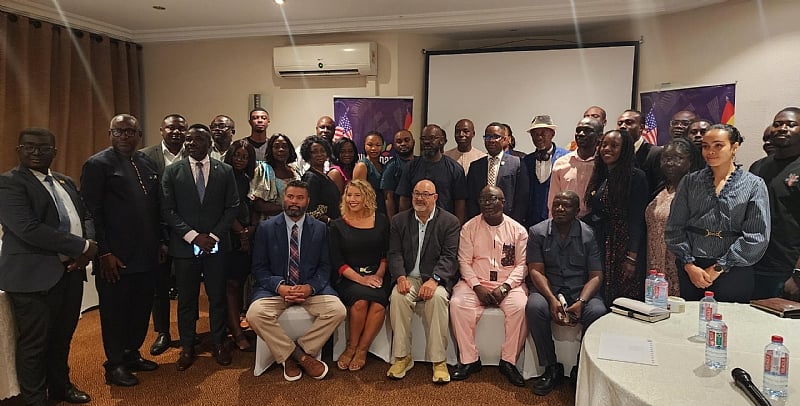The Ghana-Nebraska Agribusiness Growth and Trade Relations Chamber is dedicated to fostering stronger ties between Ghana and Nebraska, focusing on agribusiness innovation, trade partnerships, and educational exchanges. The Chamber, co-founded by Alberta Nana Akyea Akosa, Executive Director of Agrihouse Foundation, and former Nebraska State Senator Ken Schilz, has experienced significant growth in its three-year history, facilitating annual trade missions to Nebraska that connect Ghanaian businesses in livestock, education, crop production, machinery, equipment, and agro-processing with their Nebraskan counterparts. The Chamber’s mission extends beyond simply facilitating trade; it actively encourages two-way investment and cooperation, fostering a mutually beneficial relationship between the two regions. A key component of this strategy involves equipping Ghanaian businesses with the cultural and strategic understanding necessary to navigate the American business landscape and effectively communicate their needs and capacities to potential partners.
Recognizing the importance of addressing challenges encountered during previous trade missions, the Chamber has prioritized improving business-to-business matchmaking and communication. Ms. Akosa highlighted the need for clear articulation of business needs, capacity, and goals to maximize the potential for successful partnerships. To achieve this, the Chamber has implemented pre-mission stakeholder engagement events, such as the one held in Accra, themed “Doing Business in America with Americans and in Ghana with Ghanaians.” These sessions provide valuable insights and strategic guidance to participating businesses, ensuring they are well-prepared to engage with their American counterparts effectively. Furthermore, the Chamber encourages a collaborative approach among Ghanaian businesses, emphasizing the importance of consistent quality and volume in exports to achieve sustainable trade relationships.
The Chamber’s activities extend beyond facilitating trade and investment, encompassing a strong focus on educational exchange. A pilot undergraduate agribusiness program in Nebraska serves as a testament to this commitment, demonstrating the Chamber’s intent to replicate such structured collaborations across its other core pillars of trade and livestock. This focus on education aims to equip future generations with the skills and knowledge necessary to drive sustainable growth in the agribusiness sector. Ms. Akosa also hinted at the Chamber’s ambitious plan to launch a cooperative agribusiness venture under its brand, further solidifying the commitment to collective growth and impact. This initiative aims to empower members by leveraging shared resources and expertise, ultimately contributing to the overall success of the Ghana-Nebraska partnership.
Former Senator Schilz echoed Ms. Akosa’s sentiments, emphasizing the foundational role of relationships in building successful partnerships. He recounted the pivotal moment when a Ghanaian delegation visited the Agriculture Committee office in Nebraska, an event that catalyzed further exchanges and laid the groundwork for deeper engagement. Schilz underscored the Chamber’s objective to demystify the business environment in both countries, making agribusiness and trade opportunities more accessible to businesses on both sides. He further highlighted the ongoing efforts to adapt large-scale American agricultural technology to suit the specific needs and conditions of Ghanaian farms, acknowledging the importance of tailoring solutions to local realities.
This adaptation process involves collaborating with engineers to design smaller, more adaptable machinery that is easier to repair and maintain, addressing the practical challenges faced by Ghanaian farmers. Several American companies are actively developing and testing such machinery, with plans to introduce them to the Ghanaian market soon. The Chamber’s focus on technology transfer demonstrates its commitment to practical, impactful solutions that address the specific needs of Ghanaian agriculture. This approach goes beyond simply exporting existing technology; it focuses on creating sustainable solutions that empower local farmers and contribute to long-term growth.
Ultimately, the Ghana-Nebraska Agribusiness Growth and Trade Relations Chamber envisions a long-term, mutually beneficial partnership, built on trust, innovation, and shared purpose. The Chamber’s commitment to fostering two-way investment, adapting technology to suit local needs, and prioritizing educational exchange underscores its dedication to creating sustainable and impactful change within the agribusiness sector. The Chamber’s ongoing efforts to improve communication and matchmaking between businesses, alongside its focus on fostering a collaborative environment, highlights its comprehensive approach to building a thriving and enduring partnership between Ghana and Nebraska. This commitment to fostering enduring relationships across various sectors, from education and trade to investment, demonstrates a holistic approach that seeks to create lasting impact and shared prosperity.


